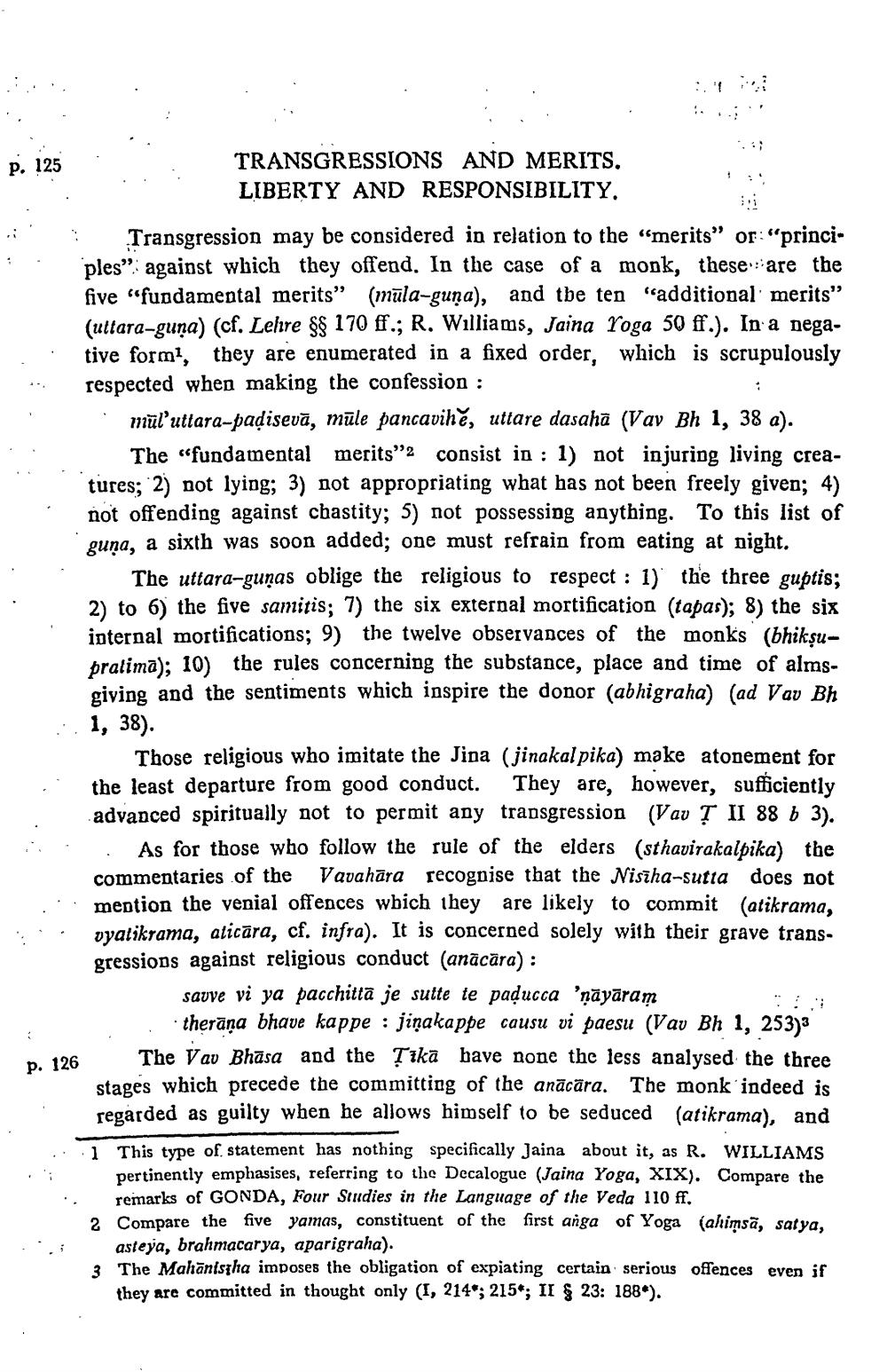________________
p. 125
...
TRANSGRESSIONS AND MERITS.
LIBERTY AND RESPONSIBILITY. ' ; Transgression may be considered in relation to the “merits" or "princi
ples”: against which they offend. In the case of a monk, these are the five "fundamental merits" (mūla-guna), and the ten "additional merits"
(uttara-guna) (cf. Lehre $$ 170 ff.; R. Williams, Jaina Yoga 50 ff.). In a nega.. tive form, they are enumerated in a fixed order, which is scrupulously
respected when making the confession :
mül’uttara-padisevā, mūle pancavihě, uttare dasahā (Vav Bh 1, 38 a).
The “fundamental merits"2 consist in : 1) not injuring living creatures; 2) not lying; 3) not appropriating what has not been freely given; 4) not offending against chastity; 5) not possessing anything. To this list of guņa, a sixth was soon added; one must refrain from eating at night.
The uttara-gunas oblige the religious to respect : 1) the three guptis; 2) to 6) the five samitis; 7) the six external mortification (tapas); 8) the six internal mortifications; 9) the twelve observances of the monks (bhikṣupratima); 10) the rules concerning the substance, place and time of almsgiving and the sentiments which inspire the donor (abhigraha) (ad Vav Bh 1, 38).
Those religious who imitate the Jina (jinakal pika) make atonement for the least departure from good conduct. They are, however, sufficiently advanced spiritually not to permit any transgression (Vav Ţ II 88 b 3).
. As for those who follow the rule of the elders (sthavirakalpika) the commentaries of the Vavahāra recognise that the Nisiha-sutta does not mention the venial offences wbich they are likely to commit (atikrama, vyalikrama, aticāra, cf. infra). It is concerned solely with their grave transgressions against religious conduct (anācāra) :
sauve vi ya pacchittā je sutte te paducca 'nāyāram
therāņa bhave kappe : jinakappe causu vi paesu (Vav Bh 1, 253) 196 The Vav Bhāsa and the Țika bave done the less analysed the three
stages which precede the committing of the anācāra. The monk indeed is regarded as guilty when he allows himself to be seduced (atikrama), and
1 This type of statement has nothing specifically Jaina about it, as R. WILLIAMS
pertinently emphasises, referring to the Decalogue (Jaina Yoga, XIX). Compare the
remarks of GONDA, Four Studies in the Language of the Veda 110 ff. 2. Compare the five yamas, constituent of the first anga of Yoga (ahimsa, satya.
asteya, brahmacarya, aparigraha). 3 The Mahānisiha imposes the obligation of expiating certain serious offences even if
they are committed in thought only (I, 214, 215°; II & 23: 188).




